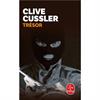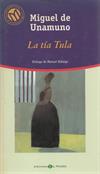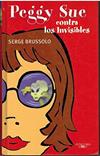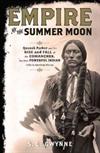
Empire of the Summer Moon
3 journalers for this copy...
In the tradition of Bury My Heart at Wounded Knee, a stunningly vivid historical account of the forty-year battle between Comanche Indians and white settlers for control of the American West, centering on Quanah, the greatest Comanche chief of them all.
This was really an exceptional history of the Comanches and their role in delaying the opening of the American West. The Comanches were legendary for their fighting ability and their horsemanship. Long before the whites came into their land, they were fighting with other tribes including the Apaches. They were also known for their bloodthirstiness and torture which they had used on their enemies for centuries. When the whites came along this was also used on them. This book really does not flinch in describing this. They were so skillful with their arrows and lances that they stopped the northern drive of colonial Spain from Mexico as well as the French expansion westward from Louisiana. The Comanches forced the creation of the Texas Rangers but the war with them lasted four decades and held up the development of the American nation.
As part of the back-drop for this history, Gwynne tells the story of the pioneer woman, Cynthia Ann Parker, who was abducted by the Comanches when she was about ten. She was adopted by the tribe and lived with them for 24 years before being taken back in a raid by Texas Rangers.
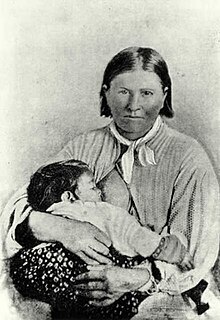
She left behind two sons, one of which was Quanah Parker who became the last chief of the Comanches. "Parker rose quickly to the leadership of the Quahadi band of Comanches as a young man of perhaps only 20. When Americans entered the picture in the 1830s and beyond, the Quahadis fought them so hard that by the 1870s whole counties formerly settled by Texas ranchers and farmers were depopulated. Parker’s tough leadership eventually proved no match for the combined weight of Texas Rangers, the U.S. Army and other heavily armed enemies, who finally broke the Quahadi resistance after removing other Comanche bands to reservations and reducing their number to no more than 2,000. After surrender, Parker continued to insist on preserving Comanche ways. Gwynne considers Parker alongside Geronimo, the better-known Apache leader, and finds the latter wanting in the comparison. Parker remained a leader of his people to the end, one who “looked resolutely forward toward something better” rather than surrendering to embitterment or allowing himself to be put on display as a wild Indian now tamed."
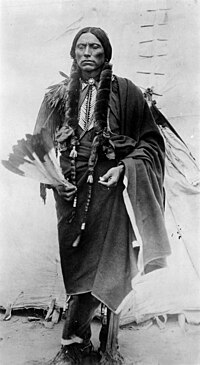
This really engaging history provides a no-holds-barred look at the Comanche people and how they tried to maintain their way of life. This did include a lot of bloodshed and torture but to them there was no other way to survive. With the killing of the buffalo by the hide takers and the outright orders for their extermination by the government, their way of life was doomed.
As part of the back-drop for this history, Gwynne tells the story of the pioneer woman, Cynthia Ann Parker, who was abducted by the Comanches when she was about ten. She was adopted by the tribe and lived with them for 24 years before being taken back in a raid by Texas Rangers.

She left behind two sons, one of which was Quanah Parker who became the last chief of the Comanches. "Parker rose quickly to the leadership of the Quahadi band of Comanches as a young man of perhaps only 20. When Americans entered the picture in the 1830s and beyond, the Quahadis fought them so hard that by the 1870s whole counties formerly settled by Texas ranchers and farmers were depopulated. Parker’s tough leadership eventually proved no match for the combined weight of Texas Rangers, the U.S. Army and other heavily armed enemies, who finally broke the Quahadi resistance after removing other Comanche bands to reservations and reducing their number to no more than 2,000. After surrender, Parker continued to insist on preserving Comanche ways. Gwynne considers Parker alongside Geronimo, the better-known Apache leader, and finds the latter wanting in the comparison. Parker remained a leader of his people to the end, one who “looked resolutely forward toward something better” rather than surrendering to embitterment or allowing himself to be put on display as a wild Indian now tamed."

This really engaging history provides a no-holds-barred look at the Comanche people and how they tried to maintain their way of life. This did include a lot of bloodshed and torture but to them there was no other way to survive. With the killing of the buffalo by the hide takers and the outright orders for their extermination by the government, their way of life was doomed.
Journal Entry 3 by  perryfran
perryfran at Wishlist Tag Game , A Bookcrossing member -- Controlled Releases on Friday, February 26, 2021
at Wishlist Tag Game , A Bookcrossing member -- Controlled Releases on Friday, February 26, 2021
 perryfran
perryfran at Wishlist Tag Game , A Bookcrossing member -- Controlled Releases on Friday, February 26, 2021
at Wishlist Tag Game , A Bookcrossing member -- Controlled Releases on Friday, February 26, 2021
This arrived yesterday. Thank you! And thank you for adding photos and bios for some of the folks this book focuses on!
I'll be honest, I had a really hard getting through the first chapters of this book due to the author's dehumanizing descriptions of the Comanche and other tribes.
The author clearly has a very narrow, Anglo-centric view of what "civilization" should look like, and dismisses anything outside that as "backwards", "Stone Age", "pre-civilized" "low-barbarian", etc. regardless of the fact that this lifestyle was clearly working well for the Comanche pre-colonization, and that many of the traits he seems to view as a failure for culture to evolve in the "right" ways have worked just fine for other non-Anglo societies around the globe. (I may have been particularly sensitive to this, having just read an excellent natural history book in which the author described why claims about "living fossils" or people/places/animals "untouched by time" are not accurate, as there will always be progression and change in a living system.) His strange, unscientific anthropological take results in the initial chapters describing many of these tribes in a manner that is nearly sub-human.
So why didn't I abandon this book, and leave the author (who has no historical or scientific background) to his bizarre interpretations? Well, a few chapters in, this book takes a big shift, moving focus to Why Texas Is The Best And Saved Everyone... or a more typical history of the Indian Wars. The language backs off the racist faux-science, and heads into normal historical recounts. This was way more tolerable to me, and actually quite interesting to read about the mutual changing cultures and styles of warfare during these long-standing conflicts.
I wasn't kidding about the Texas thing, though! After about a chapter or two of this section of the book, I noticed that all of the cover reviews either are by a Texas-centric publication or focus on it as history of Texan ingenuity. I suspect a drama- and glory-soaked version of state history is really where the author's interests lie, and the story of Quanah Parker was just where his research happened to lead and seemed like a salable concept. As a result, the stories of Cynthia and Quanah Parker feel a bit neglected and thin for a book that is supposed to focus on them.
The author clearly has a very narrow, Anglo-centric view of what "civilization" should look like, and dismisses anything outside that as "backwards", "Stone Age", "pre-civilized" "low-barbarian", etc. regardless of the fact that this lifestyle was clearly working well for the Comanche pre-colonization, and that many of the traits he seems to view as a failure for culture to evolve in the "right" ways have worked just fine for other non-Anglo societies around the globe. (I may have been particularly sensitive to this, having just read an excellent natural history book in which the author described why claims about "living fossils" or people/places/animals "untouched by time" are not accurate, as there will always be progression and change in a living system.) His strange, unscientific anthropological take results in the initial chapters describing many of these tribes in a manner that is nearly sub-human.
So why didn't I abandon this book, and leave the author (who has no historical or scientific background) to his bizarre interpretations? Well, a few chapters in, this book takes a big shift, moving focus to Why Texas Is The Best And Saved Everyone... or a more typical history of the Indian Wars. The language backs off the racist faux-science, and heads into normal historical recounts. This was way more tolerable to me, and actually quite interesting to read about the mutual changing cultures and styles of warfare during these long-standing conflicts.
I wasn't kidding about the Texas thing, though! After about a chapter or two of this section of the book, I noticed that all of the cover reviews either are by a Texas-centric publication or focus on it as history of Texan ingenuity. I suspect a drama- and glory-soaked version of state history is really where the author's interests lie, and the story of Quanah Parker was just where his research happened to lead and seemed like a salable concept. As a result, the stories of Cynthia and Quanah Parker feel a bit neglected and thin for a book that is supposed to focus on them.
Added to the Native American/First Nations/Indigenous Peoples box
Hardcover with dust jacket. Taken from erishkigal's Indigenous Peoples box with thanks!










